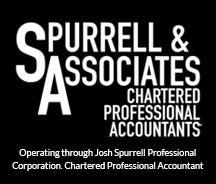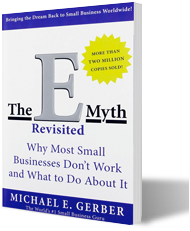Virtual Accountant | How To File T4 And T5 Slips On Time
When entrepreneurs get into business ownership says virtual accountant, they often are great at the work that their business does, but that does not necessarily make them good at running a business. As Michael Gerber, the author of the E myth has said: ìthe fatal assumption is: if you understand the technical work of the business, you understand a business that does that technical work. î When entrepreneurs are not certain about how to file certain slips properly, or when they need to remit source deductions, they could find themselves in trouble with Canada revenue agency, which can trigger audits as well as additional payments. In order to avoid this, entrepreneurs should understand what T4 and T5 slips are, and how to file them correctly.
T4 and T5 slips record all of the amounts of money that an entrepreneur has paid themselves and their employees say virtual accountant. A T4 slips is for all of the salary or wages that have been paid. This employment income requires source deductions being withheld and submitted to the Canada revenue agency. T5 slips, on the other hand, refer to the dividends that an entrepreneur or the companyís shareholders pay themselves from the prophets of the corporation. It is important to note that source deductions do not need to be taken from dividends.
Once an entrepreneur understands what T4 and T5 slips are, it is important that they understand that these need to be filed by the last day of February every year. Part of filing them properly means that any source deductions that have been withheld from the employment income also needs to be sent to the Canada revenue agency. Not only does that mean the correct amount, but on time as well.
For every payment that was disbursed as employment income, the source deductions are due at Canada revenue agency by the fifteenth day of the following month. If an entrepreneur has not paid a specific month, or not paid the right amount, they will have until January 15 to catch up on anything missed from the previous year. However, when CRA gets the T4 slips, they will know if an entrepreneur has not paid enough source deductions, and since it is due at the end of February, any amount that has been missed by the entrepreneur will be considered late. If an entrepreneur has underpaid their source deductions, and the January 15 the deadline has passed, a virtual accountant may be able to help an entrepreneur reclassify any employment income they have taken as dividends instead, so that the payroll remittances they have submitted for themselves can be reclassified to their employees, and avoid appearing short.
If an entrepreneur has shorted Canada revenue agency, and is unable to submit payment, or reclassify their income, the best-case scenario will be that Canada revenue agency sends a letter to the entrepreneur requesting the additional amounts of source deductions to be paid in full immediately. However, the worst-case scenario is that this can trigger a payroll audit for the entrepreneur.
Virtual Accountant | How To File T4 And T5 Slips On Time
It is very important that an entrepreneur ensures that they are filing their T4 and T5 slips on time say virtual accountant as well as submitting payroll remittances to Canada revenue agency. Otherwise, if an entrepreneur has not done these things they could trigger a payroll audit. This is something that entrepreneurs should avoid because it will put every single transaction under scrutiny, that could end up costing an entrepreneur far more in additional taxes, interest, and late penalties.
When an entrepreneur is getting audited, during payroll audits the auditor will be looking at the general ledger of the business as well as all of their monthly bank statements. The first thing they are looking for is all transactions that were paid to individuals and not businesses. The reason why the auditor is looking at that is to verify if these should have been payments to employees that an entrepreneur owes source deductions for. If an entrepreneur has paid for services to an unincorporated business, and auditor may consider this payment to a staff member. Virtual accountant recommends that entrepreneurs avoid hiring any businesses that are unincorporated for this reason. If they have paid, for example, a courier that is unincorporated, and make the check out to their personal name, that transaction may be at risk for being considered employment income.
The second thing that an auditor is going to be looking at is all of the money that an entrepreneur has taken out of their business as well as non-cash benefits. The right to be checking that against the T4 and T5 slips to verify that there has not been any additional amounts that were not claimed. If an auditor has found that there are additional amounts that are not claimed, a business owner will have to pay those taxes, as well as penalties and interest. Since there may be several grey area transactions that are actual business expenses, but might look like personal expenses, it is up to the auditor to attribute those amounts as they see fit. The more transactions an entrepreneur has not claimed, the more likely an auditor is going to consider those grey area transactions as personal.
If an entrepreneur has been selected for a payroll audit says virtual accountant, the first thing that they should do before the auditor gets their reviews their own transactions and any additional amounts that they have not claimed on their T4 and T fives should be attributed to their shareholder loan. That way and the auditor gets there, they will see that the entrepreneur is being reasonable on what personal benefits they should have claimed are, and will be more likely to give an entrepreneur the benefit of the doubt on the grey area transactions.
Business owners should avoid payroll audits by filing on time and ensuring they have paid source deductions properly, but if they still are finding themselves in a payroll audit situation, by doing the work ahead of time, to ensure they have claimed anything else, can help save them from having to pay on business expenses that may look like personal amounts.

